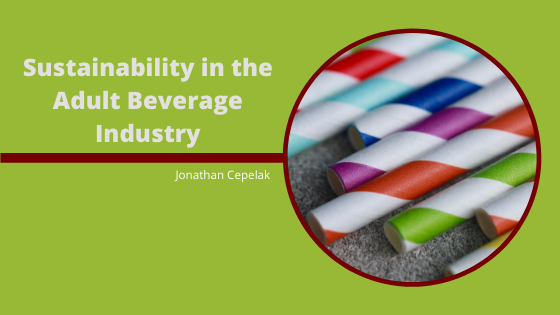When it comes to sustainability, the adult beverage industry has been behind other industries. But now there is a movement to change the way spirits are bottled and sold, among other goals. For instance, one distillery owner in Kentucky has set aside leftover bottled distilled spirits from events. By adding the excess spirits to a barrel, he has been creating what he refers to as a “mystery spirit.” The leftover distilled spirits are re-distilled. After a two to four year aging period, this uniquely created spirit will be bottled and sold. The distillery owner plans to donate the proceeds from the mystery spirit to a charity that supports the environment.
Many distilleries, wineries, and bars around the world are now experimenting with their own sustainability plans. These experiments mean that the industry isn’t wasting as many physical resources as it has in the past. When waste was being disposed of from distilleries, it was not unusual for it to end up polluting nearby rivers. This damaged the quality of the water; bad news for not only the fish living in it but the fishermen whose livelihood depends on clean waters.
During the COVID-19 outbreak, some distilleries have begun creating much-needed hand sanitizer from the by-products of distilling spirits. This not only means less waste but also they’ve provided a much-needed commodity during the crisis.
Waste from the production of wine is now being used to create adobe bricks that local bricklayers could use as material. As a result, it is being reused instead of merely depleting the world’s supply of resources.
As a growing number of manufacturers focus on sustainability, Patron is leading the way. They now use natural gas to power the distilling process. Jim Beam is also making an effort to move towards sustainability through a partnership with the Bernheim Arboretum and Research Forest. Together, they are working on a project to create a sanctuary for the cleaning and preservation of healthy water.
This kind of partnership is becoming more common in the adult beverage industry. In fact, a distillery in Scotland teamed up with Heriot-Watt University in a joint effort to bring the population of oysters back to significant numbers.
A Ukraine vodka company is also doing its part. With the cooperation of the Oceanic Global Foundation, they are enabling restaurants and bars to support sustainability. It starts with small measures, like eliminating the use of plastic straws.
The future of the adult beverage industry is sure to be affected by their newfound commitment to sustainability. Consumers who look to support sustainability efforts may find a willing partner in distilleries, wineries, and even bars.

